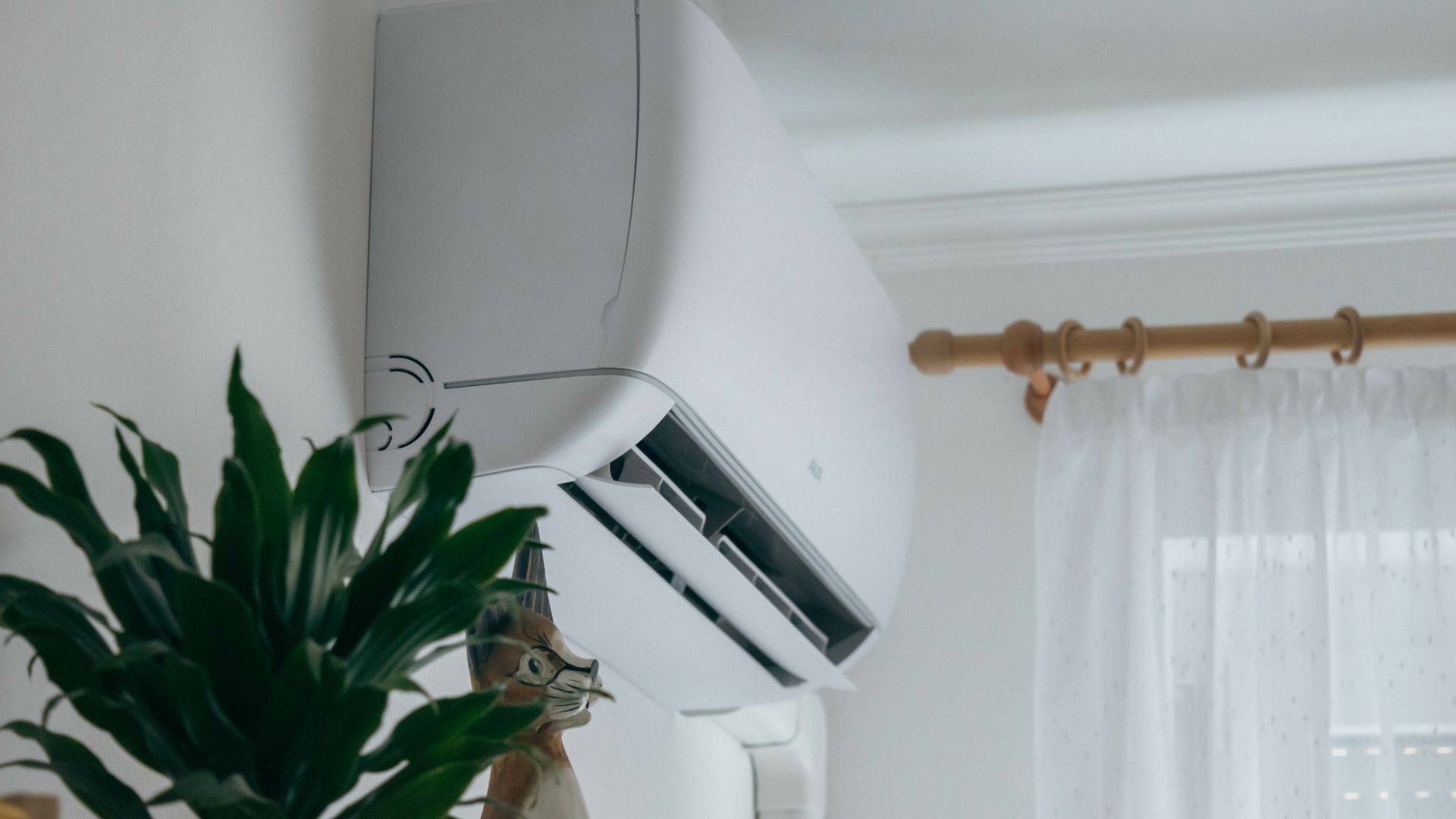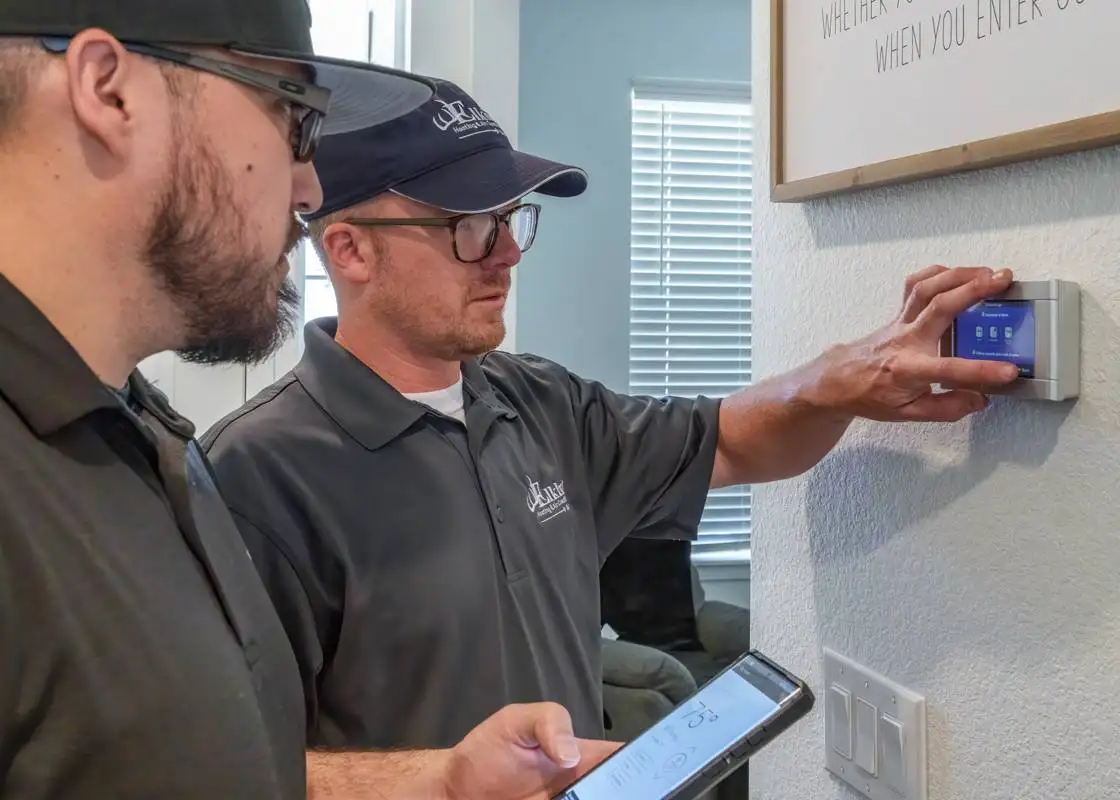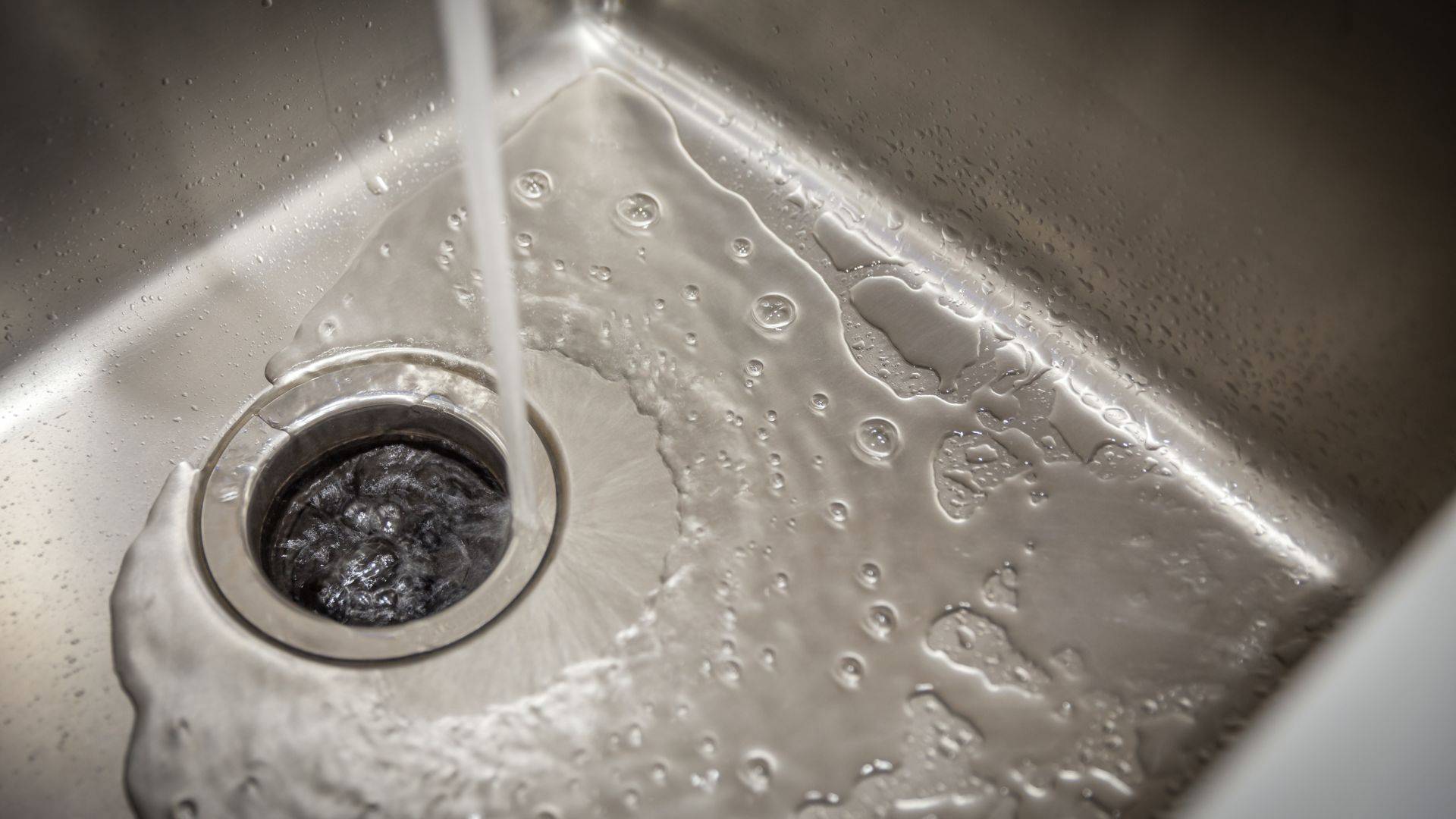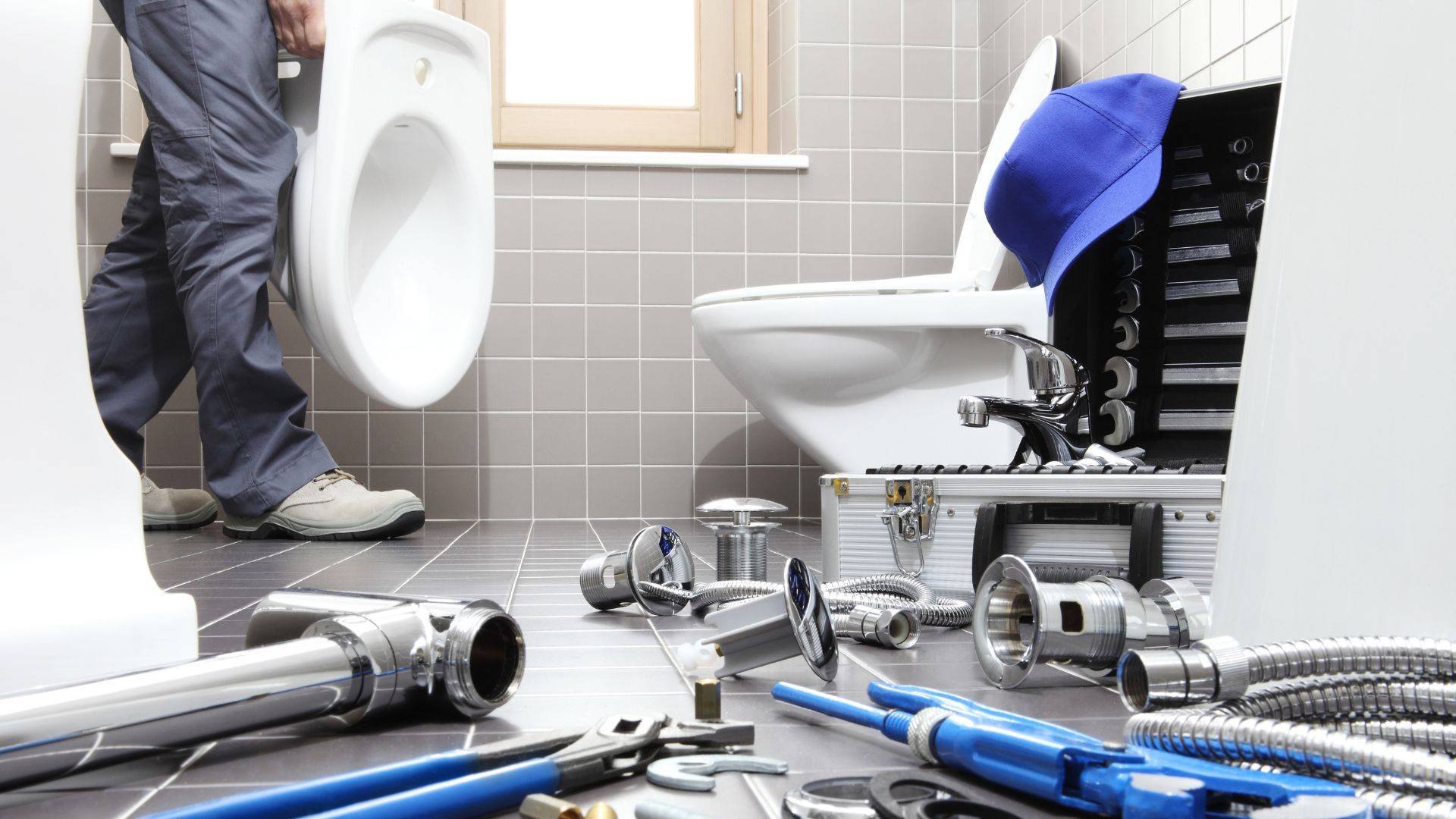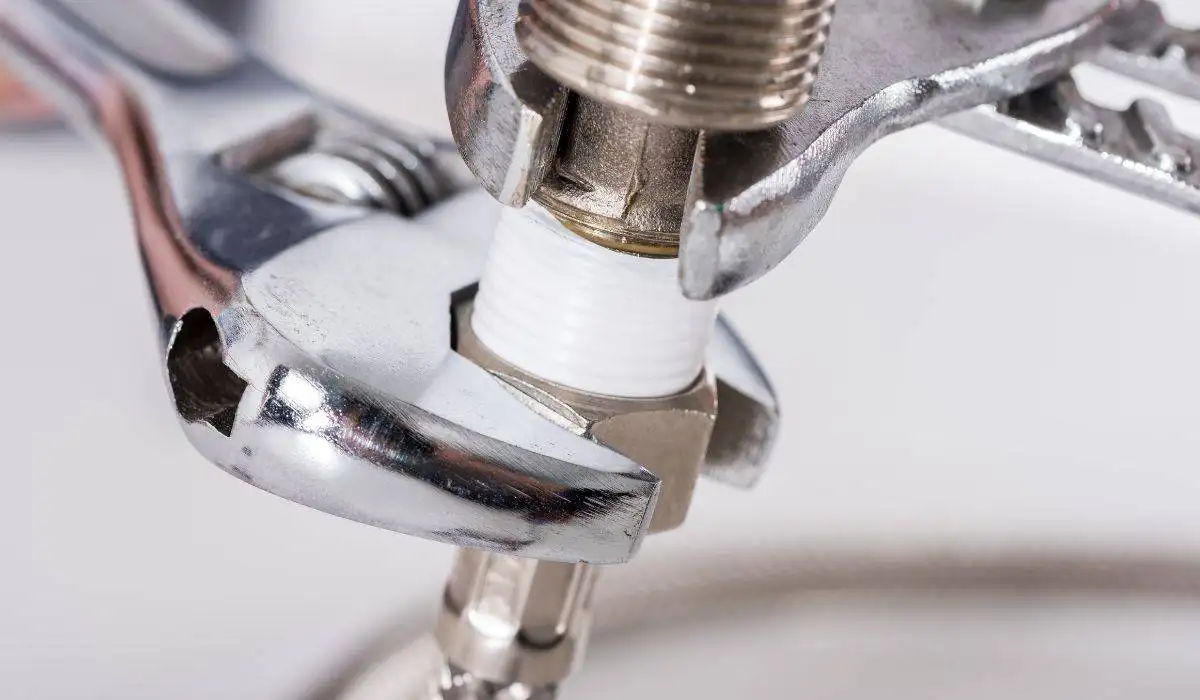More Than Just Dry Skin: The Ultimate Guide to Whole-Home Humidification in Denver’s High Desert Winter
It’s a typical January morning in Littleton. As you wake up, you notice that your throat is scratchy. Your itchy skin feels like sandpaper. Merely tapping the doorknob leads to an unpleasant zing of static electricity.
While local homeowners often blame cold temperatures for these unpleasant experiences, the real problem is the lack of moisture in the air. Denver is considered a high desert climate, which is why outdoor humidity can easily drop below 15% in the winter.
Fortunately, there’s an easy solution to this problem. With a humidifier, you can easily raise your indoor humidity levels and enjoy a greater degree of comfort. To learn more about whole-home humidifier benefits in Denver, read on.
The Science of “Real Feel”: Why Dry Air Feels Colder
As winter dryness worsens, it’s normal to feel like your indoor temperature is colder than usual. Thanks to physics, we know why this feeling happens.
- Evaporative Cooling: When air becomes dry, it carries less moisture. As a result, it draws moisture from your skin, lips, and nasal tissues. This is basically the same thing that evaporative cooling systems do. Besides drying out your skin, the evaporative cooling effect results in you feeling colder at the same air temperature.
- The Thermostat War: Because dry air feels colder at the same temperature, many homeowners crank their thermostats up to 74° in order to feel warm. Unfortunately, this can end up drying out the air even more. Additionally, higher temperature settings can lead to higher energy bills.
- The Efficiency Hack: To counteract these effects, you need to set your home to the ideal indoor humidity for winter in Colorado. Humid air naturally holds heat better. It also alleviates the evaporative cooling effect of dry air. By having a humidity level of 35% to 40% in your home, you can feel as comfortable at 68° as you would at 72° in dry air. Besides improving your comfort, a humidifier can also help you save money on your Xcel Energy bills.
Health Benefits: Fighting the “Colorado Cough”
If you’ve been dealing with the Colorado cough and dry air, there may be a few different contributing factors involved. When cold or dry air is present, studies show that influenza and cold mortality increase. Additionally, one study found that viruses can remain infectious for twice as long in dry air.
This occurs because viruses aren’t just released on their own. When someone sneezes or coughs, viruses are ejected from the body in saliva. In dry conditions, the saliva encasement lasts longer and can protect the virus. As a result, cold and flu viruses live longer and travel faster in dry air.
Worse still, dry air can weaken your body’s immune defenses. Normally, mucus membranes in your nose and throat capture and trap virus particles. As these membranes dry out in dry air, they become less effective at preventing illnesses from happening.
Finally, when you reach single-digit humidity, it negatively impacts the quality of your sleep. Moisture helps to alleviate snoring and sleep apnea. In turn, dry airways increase the likelihood of sleep problems.
Protecting Your Home Asset: Wood and Electronics
In the Littleton and Denver area, it’s quite common to experience hardwood floors cracking in winter. This is because wood functions like a sponge. When the air is dry, the wood loses moisture and shrinks.
When wood shrinks, it can cause cracking in crown molding, gaps in hardwood floors, and loose chair legs. You may even notice piano tuning issues and structural damage to guitars. Whether your goal is saving your hardwood floors or protecting wood furniture from dryness, higher humidity levels can help.
Unfortunately, wood isn’t the only household item that can become damaged by dry air. While static electricity is a minor annoyance for people and pets, it can be dangerous for your sensitive electronics and computers. Over time, static electricity can lead to more frequent repairs and replacements, which is why preventing static electricity in your home is essential.
Portable Units vs. Whole-Home Systems
Whether you want static shock solutions or better sinus infection prevention in winter, the right humidifier can help. Before considering the size, brand, or other factors, the first decision you have to make is between a portable vs. whole-house humidifier.
The Portable Struggle
A portable unit allows you to immediately set up a humidifier in a single room of your home. In exchange for this convenience, you have to deal with a noisier unit and white dust from the humidifier’s mineral deposits. Worse still, you must remember to refill the tank daily and clean it every three days. Even with all of this time and effort, a portable unit is only able to treat a single room.
Pros
- They can be set up by yourself.
- The upfront cost is low.
- They are effective if you only need to improve humidity levels in a single space.
- You can use these humidifiers if you need temporary relief during an illness.
- Portable humidifiers are effective if you are a renter and aren’t allowed to change your home’s HVAC system.
Cons
- To keep mold and bacteria from growing, you have to clean them frequently.
- These units must be refilled with water each day.
- They aren’t powerful enough to cover your entire home.
- Portable units are noisier than whole-home systems.
The Whole-Home Solution
With a whole-home humidifier, you can improve humidity levels in your entire home. Because it is directly connected to your HVAC system and your home’s water supply, you don’t have to refill it. You get immediate relief from dry air for minimal effort. Like your furnace installation, the humidifier can be directly controlled by your thermostat. Whether your home is 600 square feet or 3,000 square feet, you can ensure consistent humidity levels in every room.
At Elkhorn Heating, Air Conditioning, Plumbing & Electrical, we can help with all of your indoor air quality needs. Whether you want clean air during “the Brown Cloud” or an Aprilaire humidifier installation in Littleton, our team can evaluate the best options for your home and existing HVAC setup.
Pros
- Whole-home humidifiers can cover your entire home evenly.
- You don’t have to refill them because they’re connected to the water supply.
- The installation location is hidden.
- Whole-home humidifiers operate quietly.
- They are extremely effective for large homes.
- Whole-home humidifiers are better for your home’s air quality.
Cons
- They must be installed by a professional.
- These units cost more than portable options.
- It must be integrated into your existing HVAC system.
Types of Humidifiers: Bypass vs. Steam
Once you decide to get a whole-home humidifier, the next step is deciding if you want a steam humidifier vs. bypass humidifier. The right choice depends on your home’s size, your budget, and your desired humidifier level. When one of our HVAC technicians arrives to evaluate your air quality, we’ll review your current setup and discuss which option makes more sense for your needs.
Bypass Humidifiers
A bypass humidifier is the most common option you’ll see. It is incredibly affordable and is an effective solution for standard homes.
With this humidifier type, your furnace’s blower pushes air through the supply duct and into a bypass duct. As the air travels through the water panel, it picks up moisture from the water panel. Then, the humid air is returned to the supply duct so that it can be sent out to each of your rooms.
These units require a bypass duct to operate. In general, they work best when your furnace blower is actively running.
Pros
- These humidifiers are known for being incredibly cost-effective.
- They are easy to maintain. Each year, you simply have to change the water panel.
- Because these humidifiers use the furnace’s blower motor to propel air, they can operate quietly.
- Bypass humidifiers are an effective, whole-home solution to your humidity issues.
Cons
- Because bypass units rely on the blower, they only work when your furnace is actively running.
- While water-saving models are available, bypass humidifiers often use more water than they add to your air supply.
- These units can take up extra space.
- Bypass units are less powerful than steam humidifiers.
Steam Humidifiers
Steam humidifiers are powerful sources of humidity during Colorado’s dry winters. While they end up using more water and electricity than bypass units, they are able to function independently from the furnace.
These units improve humidity levels by using a heating element to boil water and create steam. By heating the water to a high temperature, the unit is able to destroy bacteria, mold, and viruses. As the steam is released, an internal fan and your ducts push the conditioned air into each room of your home.
Because of how powerful steam humidifiers are, they are an exceptionally good choice for large homes in Highlands Ranch. They are also effective for older homes in Denver. Older homes often lose moisture quickly because of their drafty interiors, so they require stronger humidifiers.
Pros
- The boiling process reduces allergens and is extremely hygienic.
- These units can work independently of your furnace.
- Steam humidifiers are a powerful source of humidity.
- Their high humidity output is ideal for large or older homes.
- They can produce a consistent level of moisture.
Cons
- Steam humidifiers use more water and electricity than bypass units.
- As a part of your regular maintenance, you’ll need to clean the tank and remove any humidity buildup.
- It requires a dedicated electrical circuit.
- A steam humidifier’s upfront cost is higher than the cost of a bypass humidifier.
Maintenance and Care
To maximize your HVAC’s energy efficiency and humidity levels, you need to carry out routine maintenance for your furnace and humidifier throughout the year. The following tasks can help you maximize your whole-home humidifier benefits in Denver.
Water Panel Maintenance
Within your water panel, the “biscuit” serves as a sponge. It is responsible for absorbing minerals and dust, so it should be changed at least once a year. Because wintertime is when the air is driest, we generally recommend changing it right before winter begins. It’s also a good idea to periodically check the biscuit to see if it needs to be changed early.
Summertime Shutdown
When summertime arrives, you don’t want your humidifier running. If it does, it can increase your indoor humidity levels too much and lead to mold. To prevent this from happening, we recommend switching your damper to the “Summer” position once you start using your air conditioner.
Check for Issues
To keep your humidifier functioning at its best, you should regularly inspect it for signs of an issue. For your safety, shut off the water supply valve and your HVAC system’s electricity before performing any cleaning tasks.
Once the unit is off, check the supply line and solenoid valve for signs of cracks. If they are dirty, you can clean them with vinegar.
Then, check the drain line. When it is functioning properly, it should be sloped downward. It should not be blocked by any dirt, debris, or mold.
Before winter begins, wipe down the humidifier’s housing with a damp cloth. Clean away any dust that is in the blower motor area and the interior of the housing.
Call for Help
Whether you need furnace repairs or want to integrate your thermostat and humidifier, our team can help. As a part of your routine maintenance, you should always schedule a furnace tune-up in the fall before the weather warms up.
During the tune-up, our team of HVAC technicians can inspect your humidifier for common issues. We can help you ensure healthy indoor air quality by cleaning the humidifier and repairing any problems we find. If you notice any issues between tune-ups, call us for 24/7 emergency repairs.
Protect Your Health From Colorado’s Dry Air
When static shock, nosebleeds, and cracked molding occur, proper humidity control is key. By taking advantage of whole-home humidifier benefits in Denver, you can preserve your home’s value, protect your health, and enjoy better energy savings.
Are you tired of dealing with scratchy throats and static shocks? Reimagine your home’s comfort this year with the help of Elkhorn Heating, Air Conditioning, Plumbing & Electrical. Give us a call at 720-526-3915 to learn more about the best whole-home humidifier system for your Denver or Littleton home.
